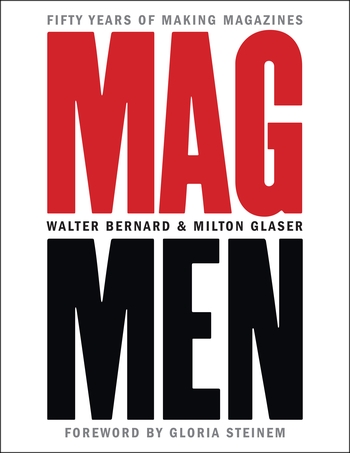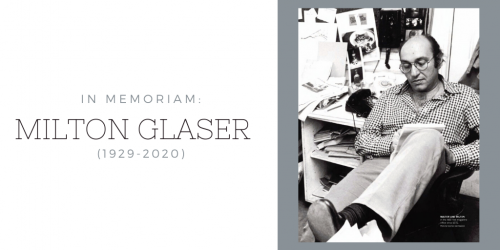Robert Gottlieb on Editing at Knopf Versus The New Yorker
“When you’re the editor-in-chief of a magazine, as I was of The New Yorker … You are the living god.”—Robert Gottlieb, “Editing Books Versus Editing Magazines”
In his essay, “Editing Books Versus Editing Magazines,” from The Art of Making Magazines: On Being an Editor and Other Views from the Industry, Robert Gottlieb compares his experiences of working as an editor at Knopf and as editor-in-chief at The New Yorker. Here’s an excerpt:
Editors do different things in different places. To start with, being the editor-in-chief of a book publishing house is a vastly different matter from being the editor-in-chief of a magazine. When you’re in a publishing house, you are in a strictly service job as an editor. Your job is to serve the book and the writer. You may think you’re the star, particularly if various newspapers are writing feature journalism about where you have lunch, but that is not the point.
The point is that book publishing houses only exist with the goodwill of their writers and only exist if the books they publish are any good. To keep your good authors and to attract other good authors, you have to serve them. They have to feel protected, which means they have to believe that their editor, a specific personal editor, understands their work, sympathizes with their work, and is on their wavelength. They must believe that the editor can help them make the book not other than what it is, but better than what it is. And that’s a complicated job, and it’s a job that can’t be taught and can’t be learned. I’ve always thought I was as good or even better as an editor my first day on the job—when I had a lot of energy—as I am now, forty-six years later or so.
You are there to keep the writer happy and feeling that he or she is protected both in terms of writing and in terms of publishing, and publishing and editing are very different matters. I, who would rather do a lot of things pretty well than one thing very well, published as well as edited, and that was fun for me. At that time, you could still be the chief editor and the publisher of a major publishing house. That is much harder to do today because it is a more bottom-line business and accountants and lawyers are far more involved than they used to be.
Anyway, as the editor-in-chief—or just an editor—at a publishing house, you live in terror of disaffecting your writers, because you know what? There are a lot of other publishing houses, and if Toni Morrison or Robert Caro or Joe Heller or John Cheever or Barbara Tuchman or John le Carré—I’m just trying to think of people I’ve worked with—if they don’t like what I’m doing, everybody else is very eager to sign them up.
So editors live in real trepidation of how writers feel about us, and that is a very, very healthy relationship, in my view. But sometimes we get swell-headed, and certainly, in my early days, I could be very contentious and fight with a writer for twenty minutes about a semicolon because I knew the truth and he didn’t and it was my job to explain that to him, not always tactfully….
When you’re the editor-in-chief of a magazine, as I was of The New Yorker, it’s opposite. You are the living god. You are not there to please the writers, but the writers are there to satisfy you because they want to be in the magazine, and you are the one who says yes or no. And if it was The New Yorker there was basically nowhere else to go. If you were the kind of writer who needed to be in The New Yorker, who wanted to be in The New Yorker, or wanted an extended lifetime relationship with The New Yorker, you had to please the editor, whether it was Harold Ross or William Shawn or myself or Tina Brown or now, David Remnick.
When I first got [to The New Yorker], I was really horrified by this attitude. I found it very distasteful that writers were trying to please me rather than to have me trying to please them. And I really didn’t know how to handle that. I was also horrified because Mr. Shawn, who was then seventy-nine, had been there so long and was so venerated that on top of being the editor-in-chief of The New Yorker he really was a living god there and was treated as such.
Shawn also had—and this is indiscreet—a genius for passive aggression that didn’t hurt this dynamic at the magazine. I did not like this at all, and it took me a long time, a) to get used to it, and b) to convince people that far from being a living god, I was just the slob that they saw running around the office talking too much. In fact, there was a wonderful moment after I had been there about six months when my closest colleague said to me—he also had been quite nervous with me—“You know, people keep coming to me and saying, ‘I just ran into Bob in the hall. He said so-and-so; what do you think he meant?’” And my colleague said it took him about six months before he was able to say with a certain calm authority that probably what I had meant was what I said, because he himself was a graduate of the particular madhouse that The New Yorker has been. What was said in Mr. Shawn’s day was not always what was meant. There were signs and omens, and then you tried to study the entrails and figure out what was actually being thought by Mr. Shawn.





1 Response